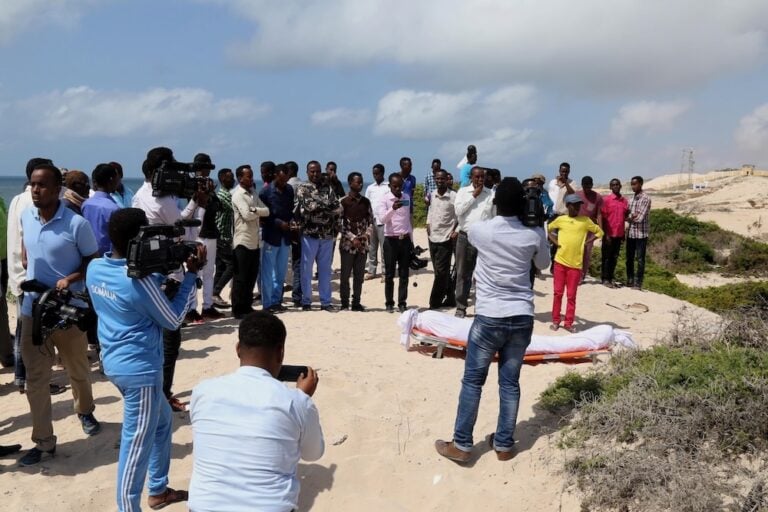The National Union of Somali Journalists fears that a draft media law passed on 11 July 2013 by Somalia's council of ministers can be easily misused for political purposes. The draft law gives broad powers to a proposed national media council, which would work under the Ministry of Information.
On 12 July 2013, The National Union of Somali Journalists (NUSOJ) said that the new draft Somali media legislation can still curb media freedom and endangers editorial independence and media pluralism.
On 11 July 2013, Somalia’s council of ministers passed a draft media law which is expected to replace the December 2007 media law. But journalists believe that this draft law can be used to silence critical media and public debate in the country.
“If left unchanged and passed by the Federal Parliament, [the] draft law would seriously restrict media pluralism, curb the independence of the press and impose a chilling effect on freedom of expression and public debate, all essential for democracy,” said Omar Faruk Osman, NUSOJ secretary general.
The draft law regulates all media outlets – electronic and print – which runs against international standards on media freedom. It also gives broad powers to a proposed national media council, which would work under the Ministry of Information.
According to international standards of freedom of expression, regulatory authorities govern broadcast media only, but Somalia’s new draft law empowers the authorities to also govern print media. “Regulating print media can curb free public debate and pluralism,” said Osman.
Several provisions in this draft law are too vague and lack clarity. The draft law also leaves numerous key terms undefined, such as “security”, “good culture” “public interest” and “national stability”, and it requires journalists to reveal their sources at a court of law.
The independence of the National Media Council is unprotected in the draft law. The whole process of the media council appointment is government-led, controlled activity. The majority of the National Media Council members are appointed from the Ministry of Information and the Parliament, and media owners are totally excluded from the membership of the council. The draft legislation accordingly fails to promote press freedom as well as mediate disputes objectively.
The draft law seems to discriminate against journalists working for foreign media organisations. It makes it easy for foreign reporters and their organizations to lose their accreditation during investigations and judicial process against them.
The draft law further specifies ethical rules that journalists must follow in practicing their journalism profession. “It is unacceptable to have journalism ethics in the media law. This provision places severe restrictions on journalism as it seeks to exclude information of public interest” added Osman.
NUSOJ fears that the draft law can be easily misused for political purposes and that it could contradict the principle of the separation of powers and of the checks and balances typical of liberal democracies.
The proposed law, which severely contradicts international standards of media freedom, is highly worrisome regarding media freedom and media pluralism. It imposes a repressive media governance system.
NUSOJ asks the Parliament and the Government to initiate an urgent revision of the draft media law and take into consideration the detailed recommendations from the media community.



